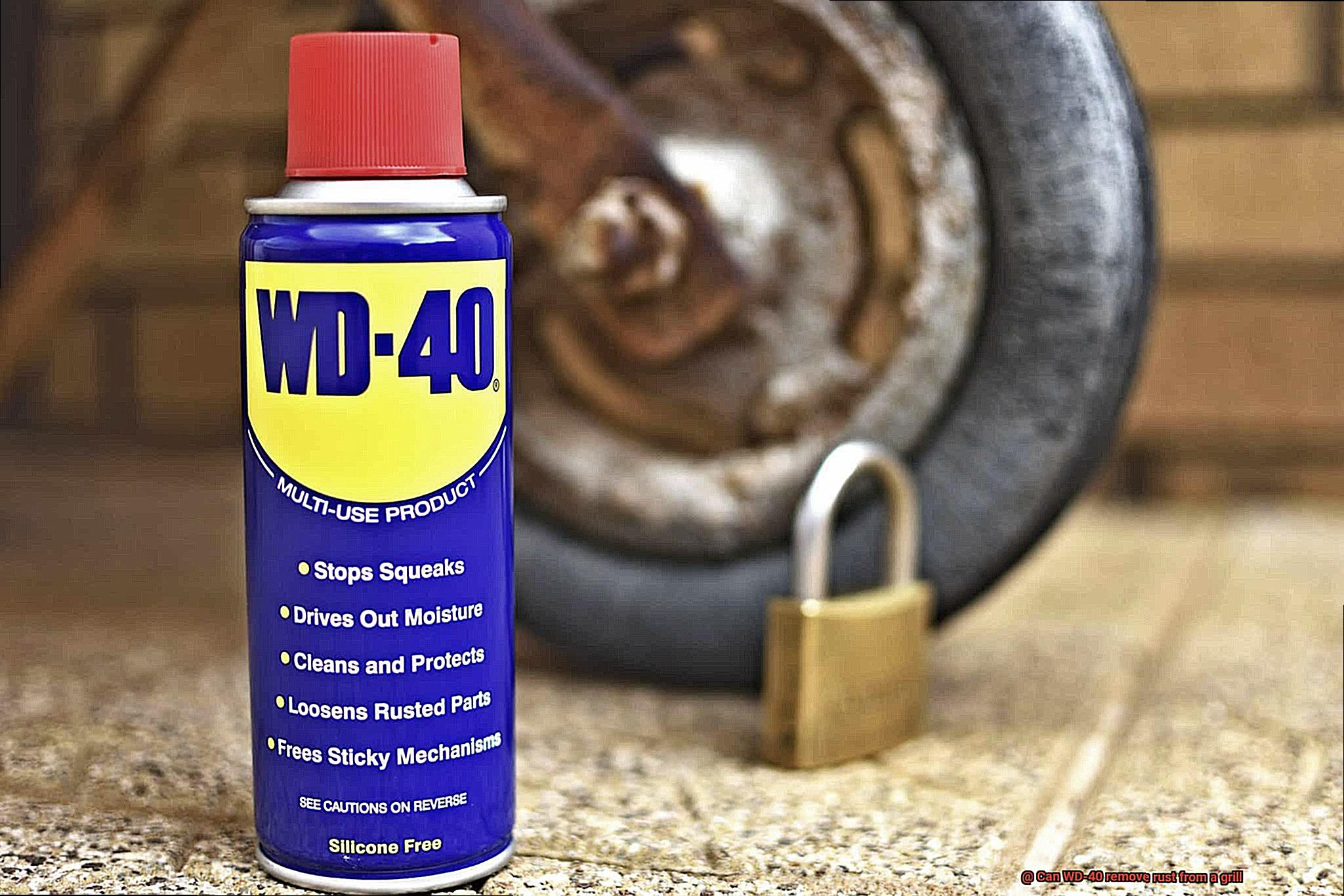You’ve got a grill that’s starting to show its age, with a little rust creeping in. Can WD-40 remove rust from a grill? The answer is yes! WD-40 Multi-Use Product can help knock out those rusty spots. Simply spray the affected areas and then use a rag or metal brush to remove the rust. This will keep your grill looking its best and ensure it performs at its peak.
The Power of WD-40®: Removing Rust from Your Grill
Rust is a common problem for grill owners, but it doesn’t have to be a major headache. WD-40® Multi-Use Product can be a valuable tool in your fight against rust. It’s more than just a lubricant; it can also be a powerful rust remover. WD-40® works by penetrating the rust layer and loosening it from the surface of your grill. This makes it easier to remove the rust with a rag or metal brush.
Can WD-40 Remove Rust from Your Grill?
The answer is a resounding yes! WD-40® Multi-Use Product is a versatile solution for tackling rust on your grill, ensuring it stays in top shape for those delicious cookouts. Here’s how it works:
- Penetrating Power: WD-40’s unique formula easily penetrates through layers of rust, loosening its grip on the metal.
- Displacing Moisture: It displaces moisture, preventing further rust formation and protecting your grill from future damage.
- Lubricating Properties: WD-40® acts as a lubricant, making it easier to remove rust with a metal brush or rag.
By using WD-40® on your grill, you can easily tackle rust and maintain its pristine condition. So, fire up the grill, knowing that WD-40® is there to keep it running smoothly!
WD-40® to the Rescue: Solving the Rust Conundrum on Your Grill
Rust is a common problem that can affect any grill, regardless of how well it’s cared for. It can occur on the cooking grates, the lid, and even the exterior of the grill. While you may think you’re stuck with a rusty grill, there’s a simple solution to help you tackle this common grilling dilemma. That’s where WD-40® Multi-Use Product comes in.
| Problem | Solution |
|---|---|
| Rust on grill components (cooking grates, lid, exterior) | WD-40® Multi-Use Product |
WD-40’s Rust Removal Prowess: Can It Tame Grill Rust?
Rust can be a real pain for any grill enthusiast. It can make your grill look unsightly and even affect its performance. But don’t despair! WD-40® Multi-Use Product is a handy tool in your fight against rust. WD-40® can penetrate and loosen rust, making it easier to remove. This versatile product can even help prevent future rust from forming, keeping your grill in tip-top shape.
Can WD 40 remove rust from a grill? Conclusion
So, can WD-40 remove rust from a grill? The answer is a resounding yes! It effectively tackles rust, making it a must-have for any grill owner. By using WD-40® to combat rust, you can keep your grill looking its best, ensuring delicious cookouts for years to come. Remember, a little preventative maintenance goes a long way, and WD-40® is your trusted ally in keeping your grill rust-free and ready for action.
Can WD-40 remove rust from a grill? Quick FAQ
Is WD-40 the only solution for removing rust from a grill?
While WD-40 is a great tool for removing rust from your grill, it’s not the only solution. There are other rust removers available on the market. You can also use a wire brush or sandpaper to scrub away rust, but remember to always wear safety glasses and gloves when working with these tools.
Can I use WD-40 to prevent rust from forming on my grill?
Yes, you can! WD-40 can also help prevent rust from forming. After cleaning your grill, apply a thin layer of WD-40 to the metal surfaces. This will create a protective barrier that helps repel moisture and prevent rust from forming.
How often should I use WD-40 to prevent rust on my grill?
You should apply WD-40 to your grill after each use. This will help keep the metal surfaces clean and dry, preventing rust from forming. For added protection, you can also apply WD-40 to your grill before storing it for the winter.

